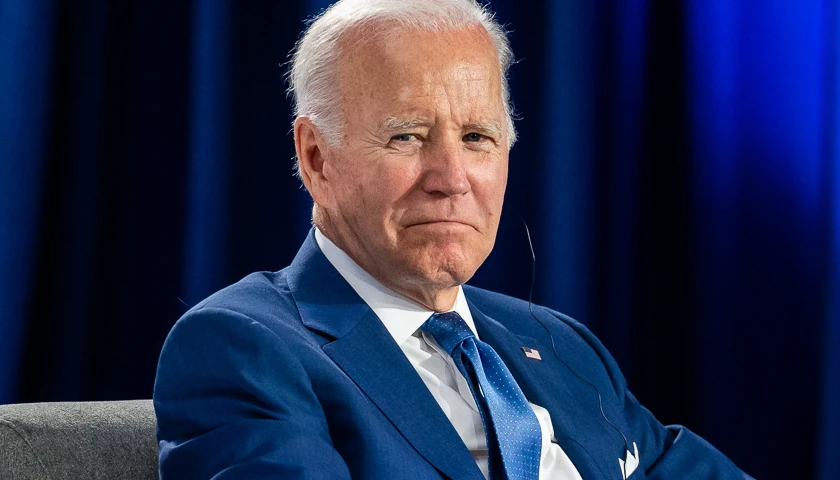Live from Music Row Friday morning on The Tennessee Star Report with Michael Patrick Leahy – broadcast on Nashville’s Talk Radio 98.3 and 1510 WLAC weekdays from 5:00 a.m. to 8:00 a.m. – host Leahy welcomed Fox Business contributor and Wall Street expert Liz Peek breaks down the current economic trends both in America and Europe citing a possible recession well into mid next year.
Leahy: On the newsmaker line, our very good friend, Fox News finance contributor Liz Peek. Good morning, Liz.
Peek: Good morning. Thanks for having me on.
Leahy: Liz, I’m sorry to say that every time you and I talk, the news is worse and worse. The economy shrank during the past two quarters.
The housing market is in freefall. Somebody I know wrote that recently, (Peek chuckles), and an inverted yield curve is flashing red. Liz, when will this free fall stop?
Peek: Yes, it’s a good question. People are estimating that we could be in a recession until mid-next year because, after all, that is the purpose of the fed hiking rates, obviously not to throw us into recession but to slow the economy enough to put a limit on inflation.
And the problem is, doing that in such a dexterous way that we don’t go into recession is almost impossible. The fed, I think J. Powell acknowledged as much after the last 75 basis point hike.
He talked about how a soft landing wasn’t going to be easy, and now it looks increasingly like it’s not going to be possible. And I think people have to also kind of look around the world.
We are not isolated in the United States. Europe is really struggling. They are entering into recession. The U.K. is in a recession. China’s increasing data shows that the Chinese economy really is in trouble.
So for the United States to kind of by itself, rely on American consumers to lift us out of what’s a pretty troubling period, I think it’s difficult. And I wrote a piece for Fox last week about Joe Biden ignoring the stock market and talking about how it doesn’t matter.
He has this whole kind of class warfare thing about how, oh, the stock market is only important to really wealthy people. That’s just not true. Fifty-eight percent of Americans own stocks, either individually or with their spouse. And more importantly, the stock market has a big impact on the economy.
If you’re feeling wealthy, you go out and shop, and if you don’t, you begin to pull in your horns. And what Biden and I think, honestly, the fed missed last year and is missing this year, is they didn’t acknowledge the huge gains in the stock market in 2021, even with the COVID problem. The truth is, people felt wealthy, and they went out.
And one of the reasons we had such a shortest ever, actually, recession and best bounce back was because everyone’s portfolio was up, their IRAs were up, and the mood of the nation was actually incredibly good, given that we were struggling through a pandemic.
And unfortunately, now the opposite is true. And now, with housing going into a recession, people feel poor again. And guess what? That’s a bad signal for the economy.
Leahy: Liz, you and I are both optimistic people, but when you hear the news, you kind of wonder, gee, are people going to start jumping off the roof these days? Crom has a question for you, Liz.
Carmichael: Liz there are two general policies, fiscal policy and monetary policy, and the Fed only controls one of those. If the government of Washington just determined to increase regulations and to increase spending and do all kinds of other things that are quite reckless, the Fed really can’t by itself fix those terrible decisions, can it?
Peek: No. And that’s something that J. Powell talked about, ironically, a couple of years ago when he was lowering interest rates to get us out of the COVID recession, he wanted the government to continue to spend money because they wanted to work together. You’re totally right.
That has to happen. Well, what’s happening now? Amazingly, the Fed is really tightening the screws by shrinking its balance sheet and raising interest rates. And what’s the federal government doing? They’re spending like there’s no tomorrow.
And I think Joe Biden’s latest thing, the half trillion dollar student loan cancellation program is just like flooding the economy with more money. And by the way, so was the Infrastructure Act, the granddaddy of all and the most reckless program.
And I have to say a lot of us were writing about it, including people like Mary Summers and Democrats, when it happened, the American Rescue Act of $1.9 trillion that was showered onto the American economy even when Gross was already six percent. That was a complete disaster.
And we see no indication from the White House that there’s a problem here. And it was so infuriating when they passed the so-called Inflation Reduction Act, which all of us acknowledge is not an inflation reduction act.
They crowed about deficit reduction of about $300 million over ten years, which, by the way, are kind of baloney numbers. But anyway, take it at face value. They were talking about, oh, we’re going to reduce the deficit $300 billion over 10 years and that will bring inflation down.
But then they turn around and spend another half trillion dollars wiping out that benefit, if there was one, from the Inflation Deduction Act. And they don’t say that’s inflationary, you can’t have it both ways, that it either is or isn’t.
And the White House, unfortunately, look, when your approval ratings are under 40 percent, as Joe Biden’s are, you have to buy votes. And that’s what they’re doing.
Leahy: Liz, I think our friends at some of the alphabet agencies may be listening in because we’re hearing a little static in the background. But let me ask you this, Liz. When is this going to turn around? How long is this downward slide going to continue?
Peek: I would hope that the inflation numbers, and I think it’s reasonable to expect the inflation numbers will begin to come in and come down for a lot of reasons, including rent. Rent is a huge component.
I think that’ll start to ease off a little bit, I don’t know. But what we need is to see inflation decline and then the Fed will get a little more relaxed about its rate hikes and then the market will respond.
There’s no question that stocks are waiting for that to happen. The problem is, I think we have six months between now and then because analysts on Wall Street have not lowered their earnings estimates. So that kind of means there’s bad news to come.
Leahy: I think you’re accurate now, of course. Last question, Liz. Are you sick of being in New York yet? I mean, come on. It’s just so crazy up there. Is anything going right up in New York State?
Peek: Honestly, not much. And the only thing that could turn things around is electing a Republican governor.
Leahy: That’s not going to happen, though, Liz, is it?
Peek: It’s unlikely. But you never know. If people don’t show up on the Democrat side, stranger things have happened. And by the way, we have had Republican governors in New York before, so fingers crossed.
Leahy: We have a Republican governor here in Tennessee, and I don’t know if I’ve ever mentioned this to you before, Liz, we have no state income tax here.
Peek: You know, I had that feeling. And guess what? It works.
Leahy: It does. It really does. Liz, as always, a great pleasure having you on, and look forward to talking with you again. Thanks so much for joining us today.
Peek: Thank you for having me. Have a great day.
Listen to today’s show highlights, including this interview:
– – –
Tune in weekdays from 5:00 – 8:00 a.m. to The Tennessee Star Report with Michael Patrick Leahy on Talk Radio 98.3 FM WLAC 1510. Listen online at iHeart Radio.
Photo “Liz Peek” by Liz Peek.





